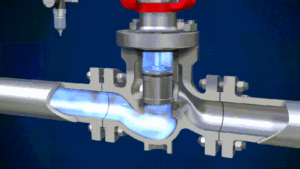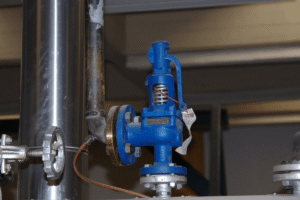In today’s rapidly evolving world, plumbing tech innovations are playing a significant role in transforming how we manage and interact with water systems. These advancements are not only making plumbing services more efficient but are also contributing to sustainable practices and improved living standards. As we delve into the realm of modern plumbing, it’s essential to understand how these innovations are influencing industries and daily life.

The Rise of Smart Plumbing
One of the most notable plumbing tech innovations is the integration of smart technology into water systems. Smart water valves, for instance, are revolutionizing how industrial engineers and homeowners control water flow. These smart devices can detect leaks, monitor water usage, and even shut off the water supply remotely to prevent damage.
Benefits of Smart Plumbing
Smart plumbing systems offer numerous advantages, including enhanced water conservation, reduced water bills, and early detection of issues that could lead to significant water damage. Moreover, these systems are designed to integrate seamlessly with other smart home technologies, providing a comprehensive approach to home management.
AI and Machine Learning in Plumbing
The incorporation of artificial intelligence (AI) and machine learning into plumbing systems represents another critical advancement. These technologies enable predictive maintenance, allowing for proactive management of plumbing systems. With AI, potential issues can be identified and addressed before they escalate, which is particularly beneficial in industrial settings where downtime can be costly.
Predictive Maintenance
Predictive maintenance powered by AI helps in minimizing disruptions by scheduling repairs and maintenance activities at optimal times. This approach not only saves time and resources but also extends the lifespan of plumbing systems. For more insights, you can explore how DripX detects leaks using advanced AI algorithms.
Water Conservation Technologies
As environmental concerns grow, water conservation has become a top priority in plumbing tech innovations. Technologies such as low-flow fixtures, greywater recycling systems, and rainwater harvesting systems are being implemented to reduce water waste.
Low-Flow Fixtures
Low-flow fixtures, including toilets, showerheads, and faucets, are designed to use significantly less water without compromising performance. These fixtures are an essential component of sustainable plumbing practices and contribute to substantial water savings in both residential and commercial settings.
Advanced Pipe Materials
Innovations in pipe materials are also shaping the future of plumbing. New materials, such as cross-linked polyethylene (PEX) and chlorinated polyvinyl chloride (CPVC), offer superior durability and flexibility compared to traditional materials like copper and PVC.
Benefits of Modern Pipe Materials
These advanced materials are resistant to corrosion, easy to install, and have a longer lifespan. They also provide better insulation, which reduces heat loss and enhances the overall efficiency of plumbing systems.
Integration with Smart Home Systems
The integration of plumbing systems with smart home technologies is creating a more cohesive and efficient home environment. This connectivity allows homeowners to monitor and control their water usage through mobile apps, providing convenience and peace of mind.
App-Based Water Management
App-based systems enable users to track water consumption, receive alerts about potential issues, and even control water flow remotely. Learn more about app-based water shutoff solutions that enhance home automation.
Challenges and Opportunities
While plumbing tech innovations offer numerous benefits, they also present challenges, such as the need for skilled technicians to install and maintain these advanced systems. However, these challenges are opportunities for growth and development in the plumbing industry.
Training and Education
As technology continues to evolve, there is a growing demand for skilled professionals who can navigate and manage these complex systems. This demand is driving the need for specialized training programs and educational initiatives in plumbing and related fields.
The Future of Plumbing Tech
The future of plumbing technology is promising, with ongoing research and development aimed at creating even more efficient and sustainable solutions. Innovations such as smart water meters, advanced leak detection systems, and automated water management systems are on the horizon.
Smart Water Meters
Smart water meters provide real-time data on water usage, enabling consumers and businesses to make informed decisions about their water consumption. This technology is crucial for promoting water conservation and reducing waste.
Conclusion
In conclusion, plumbing tech innovations are transforming the way we interact with water systems. From smart plumbing to AI-driven maintenance, these advancements are paving the way for more efficient, sustainable, and responsive plumbing solutions. As the industry continues to evolve, it presents exciting opportunities for professionals and consumers alike.

FAQ
What are the benefits of smart plumbing systems?
Smart plumbing systems offer water conservation, cost savings, and early leak detection, enhancing overall efficiency and safety.
How does AI contribute to modern plumbing?
AI enables predictive maintenance and proactive management of plumbing systems, reducing downtime and extending system lifespan.
What role do advanced materials play in plumbing?
Advanced materials like PEX and CPVC provide durability, flexibility, and better insulation, improving plumbing efficiency and longevity.
For further reading, consider exploring an external perspective on how AI is changing plumbing services.
This article contains affiliate links. We may earn a commission at no extra cost to you.



